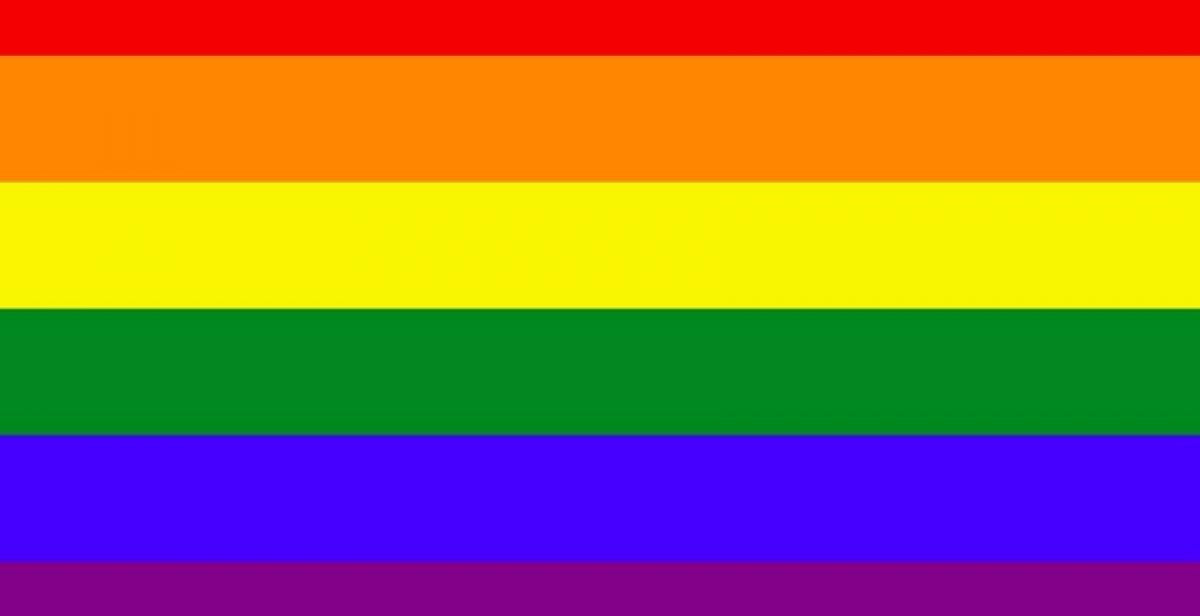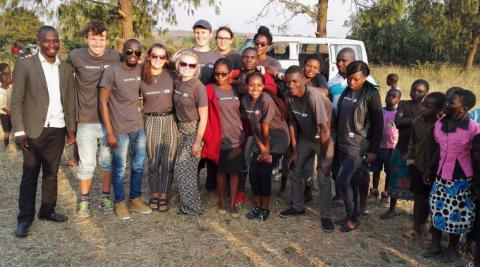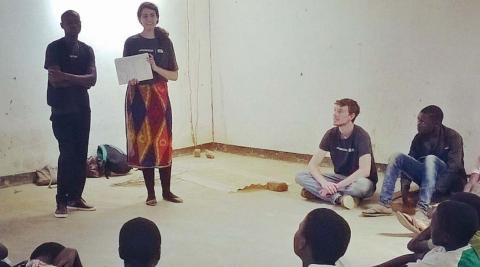Our UK volunteers share their experience as members of the LGBTI community and tell us what their ICS placements were like in Southern Africa and Central America. Thank you on behalf of Progressio for the wonderful testimonies.
Nathan Penman (Malawi)
As an LGBT person, travelling to a country where your lifestyle is criminalised can be a daunting prospect, to say the least. But, please don’t let this impact your decision to undertake an ICS placement! Your sexuality doesn’t define you in the UK, and it shouldn’t do so in your host country either. Being LGBT can be isolating, and often these feelings are exaggerated in an environment where you have to hide that part of yourself. Remember that you are only on placement for three short months, and you are in a community at a very different stage of development to what you are used to.
Opinions, views and values will be different. Perceptions of sexuality are very different from the UK. Malawi has no gay figures in the public eye. As a result, it’s hard for people to identify someone as gay based on their mannerisms alone – effeminate or butch tendencies generally aren’t synonymous with homosexuality because so few identifiably ‘gay’ people exist. Therefore, don’t be self-conscious about the way you present yourself – things will probably be interpreted differently in your host country anyway. Therefore, the public would need to see you act affectionately towards a member of the same-sex in order to identify you as gay. Heterosexual public displays of affection are frowned upon in Malawi anyway, and it’s important to respect the values of the community you are in.
Malawians do tend to be very tactile with members of the same sex anyway – it’s not uncommon for two men or two women to hold hands platonically. While LGBT issues are a big topic in the UK, the topic is rarely raised in Malawi. This also makes things easier, because you can easily avoid discussions about the topic if you want to. If you feel comfortable enough though, don’t be afraid to challenge perceptions! For example, I was open about my sexuality with my Malawian colleagues, but only after building a strong relationship with them first.
Most of them reacted very positively and I felt I was able to transform some opinions during my time in the country. However, I would stress caution if you choose to do this – not everyone’s reaction will be the same. Please remember, you are under no pressure to disclose your sexuality, at any time during your placement!
Chelsie Sparks (Zimbabwe)
In Zimbabwe, same-sex sexual activity is completely illegal. It is frowned upon and it is not the cultural norm. On ICS, you are expected to respect the new culture you enter, but how can you show respect when that culture doesn’t even accept you in the first place? That was a struggle I found myself fighting with on my placement but I refused to let it hold me back.
At home in Belfast, my queer identity is integral and intrinsically interlinked with my values but in Zimbabwe that immediately became irrelevant. However, that doesn’t mean to say that you have to hide yourself and your personality in any way. Let your identity fuel your passion for tackling injustice, and let your pain and anguish encourage you to fight for the rights of others.
My first piece of advice to any LGBTQ person who wants to undertake an ICS placement is to get really stuck into some research. Google the country you’re going to and find out what kind of LGBTQ rights they have, if any. That way you can get a grasp of how you could potentially be received by that particular culture on the whole.
Yes, it’s sad and yes it’s 2016 but please do not put yourself in harm’s way. ICS gives you the space to challenge things that upset you, but don’t go thinking that you alone can change the attitude of an entire country. That will take way more than one British volunteer on a three or six month placement. Don’t put yourself or your project into jeopardy. Safety whilst on ICS is paramount, and if the thought of coming out on placement makes you question your safety, then it’s probably best to stay closeted.
When I was in Zimbabwe, I didn’t come out to everybody. The UK part of my team knew about my identity, but many of my Zimbabwean counterparts didn’t and I decided that would be best for me. Do what’s best for you, but think about it and make sure you are completely comfortable. I came out to my fellow national team leader one night towards the end and I was surprised by his kind, heart-warming reaction. It didn’t matter to him. It’s not all bad, but it certainly isn’t all happy either. I also remember a Zimbabwean volunteer saying that they think "gays have an illness” and that "they are victims”. So, reactions really can vary. You need to be aware and ready for that.
Once I had got to terms with all that, my ICS placement was unchanged and it wasn’t compromised. I still developed so much on a personal and professional level, I just had to minus the queer aspect. After all, I believe we are so much more than our sexual orientation. Let your ICS placement nourish the other parts of your personality and your life, and you’ll undoubtedly have the incredible experience that you want to have. Find a happy medium and flourish!
Aidan Fielding (Honduras)
Before I left for Honduras, I asked at my pre-departure training what people's attitudes towards me as a homosexual might be in-country. I was asking this already knowing the answer for the country as a whole - I have never yet visited a new place without doing some research into this very topic beforehand. The response was that I wouldn't be able to know about the community I was placed in until I got there, and that I should decide how much I felt comfortable to disclose once I was there.
For me, the main concern was the fact that my host family were most likely going to be Catholic (like the majority of Hondurans), who are historically not the most accepting of such things. I know that this is a broad brush-stroke, as my closest friend and her family are all Catholic and yet the most loving and accepting family I know. However, I ascribe a part of that to the fact that they live in a country where a cultural shift towards the LGBT community has happened and continues to develop. In the end, I left for Honduras with strict instructions from friends and family that I should keep a low profile - more than one person had dramatised the possibility of violence against me in their heads, and my loved ones had some concerns to say the least.
But at pre-departure training I had read a news article written by a volunteer who had been to Malawi, where (unlike Honduras) being gay is a punishable offence under the law. He wrote that he felt such empathy for the suffering of the LGBT community in Malawi that he couldn't keep his silence, as he felt he owed it to them. I, however, did not feel the same way and began to question whether that made me a bad person. I resolved in my head that it was about comfort zones and I didn't want to be ostracised by the community I was trying to help so, for the majority of my placement, I didn't address my sexuality with the national volunteers and simply focused on the project.
However, there exists an innate ability within people to tell when someone doesn't fit what is generally accepted as the hetero-normative gender identity. Sometimes this can be glaringly obvious and sometimes it can be much more subtle, but when applied to the gay community this is referred to as a "gaydar". I like to think that mine is pretty good and during my in-country training in Honduras, we met the national volunteers and one of them fell into the "glaringly obvious" category mentioned above (I'll refer to him as John). This maybe wasn't in the typical way that we may experience it in England as, for example, he was very good at football (much like the rest of the country) and a little bit aggressive when playing, which is something people may consider to be proof of one's heterosexuality in the UK.
Time went on and neither of us decided to discuss our mutual sexuality with the other, though I'm not quite sure why. On many occasions the Honduran volunteers would ask me whether I had a girlfriend and my response was always a flat "no" to which they commonly replied "why not?" and I always said "because I don't want one". Through doing this I didn't feel that I was lying or hiding anything, but simply withholding something in order to feel comfortable. This was noticed by them though, and one of the girls commented that I didn't like to be asked personal questions.
In the end, John approached me in the final week of the placement with a note in his hand saying he had something to talk to me about. He said to me that I had a secret, to which I replied that I didn't and that all of the British volunteers knew lots of things about me. He refused to hand me the note but passed it to one of my fellow volunteers who informed me that on it was written: you and me are the same frown emotion.
At this point, I felt a pang of guilt at my decision not to discuss this topic with the nationals. The group we had were very forward-thinking and didn't all fit with the traditional Honduran cultural attitude towards the LGBT community that I was wary of. In fact, many interesting discussions arose in the final week as a result of this exchange and although John's behaviour towards me became VERY flirty, it was interesting to hear from him and others about their views of sexuality, as well as to sadly hear of people in the community who had struggled with it to the point of suicide.
If I had any advice for others going forward, it would be to have a flexible and adaptable (classic Progressio lingo) attitude towards how you decide to approach disclosure of your sexual identity. Although an air of caution is definitely important, I wish I had paid more attention to the article I read at my pre-departure training.
Written by ICS Alumni Nathan Penman, Chelsie Sparks and Aidan Fielding.






